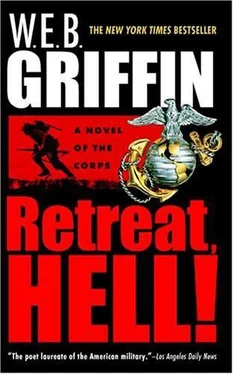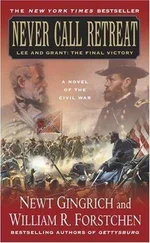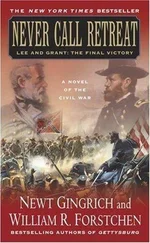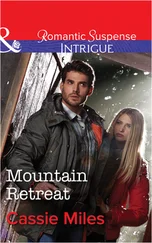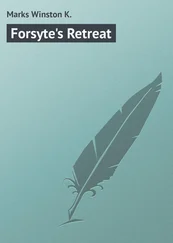Kimpo Airfield
Seoul, South Korea
1425 29 September 195O
The two senior commanders in Korea, Lieutenant General Walton Walker, the Eighth Army commander, and Major General Edward M. Almond, the X Corps commander, accompanied the Supreme Commander to the stairs of the Bataan.
Both were still wearing their newly awarded Distinguished Service Crosses pinned to their fatigue jackets.
Of the two, the shorter, almost rotund Walker presented the most military appearance. His fatigues had obviously been tailored to his body, and they were starched. He wore a varnished helmet with the three silver stars of his rank fastened to it, and polished "tanker" boots, as he had while serving under General George S. Patton in Europe.
Almond was wearing clean but rumpled fatigues and what the Army called "combat" boots. These looked like rough-side-out work shoes to which had been sewn a band of smooth leather fastened to the lower calf with a double buckle. The only things that distinguished him from any of the soldiers in his command were the stars pinned to his collar points and fatigue cap—which was crumpled and looked too large for him—and the general officer's leather pistol belt around his waist.
"You are both to be congratulated," MacArthur intoned. "And I shall expect equally great things from you in the future."
He first shook Walker's hand, then let go. Walker saluted. MacArthur returned it. Then he shook Almond's hand, let it go, and returned his salute.
He then took one step up the stairway and stopped and turned.
"By the way, Ned . . ." he began.
"Yes, sir?" Almond asked.
"This is addressed to you in your capacity as Chief of Staff, Supreme Headquarters."
"Yes, sir?"
"Those helicopters we saw?"
"Yes, sir."
"Dog and pony shows are sometimes necessary, but under the present circumstances, I can't see that the time and effort are justified. Have them transferred immediately to the CIA here in Seoul."
"Sir?" Almond asked, more than a little surprised by the order.
"Do that today, if you can," MacArthur said. "The helicopters, the pilots, the mechanics, everything, go to the CIA, and I don't want to see photographs of them in the press. Clear?"
"Yes, sir."
MacArthur nodded at Almond, then went up the stairs and, ducking his head and without looking back, passed through the door.
"What the hell was that all about?" General Walker inquired of General Almond.
General Almond shrugged.
"I have no idea," he confessed, "but the Supreme Commander didn't leave any doubt about what he wants done, did he?"
They stood in front of the base operations tents watching as the Bataan taxied away, reached the end of the runway, ran up its engines quickly, and then raced down the runway.
The two men then looked at each another. There was no love lost between them, but there was a certain mutual respect.
"Well, Ned," Walker said as he put out his hand, "we'll no doubt be in touch."
Almond shook the hand, then saluted.
"Yes, of course we will," Almond said.
Walker nodded at him, then turned and started to walk to the Air Force C-47 that would carry him to his Eighth Army headquarters in the south.
Almond did not wait for the C-47 to take off. Even before Walker got to it, he walked toward the end of the base operations tents.
The fleet of staff cars that had been used to carry the Supreme Commander and his entourage from the airport to the Capitol Building and back—it had been assembled with no little effort; some cars had come from as far away as Pusan on an LST for the occasion—was no longer needed. Outside Seoul, with few exceptions, the roads were unpaved, in very bad shape, and not usable by passenger cars. The staff cars had been turned over to an X Corps Transportation Corps captain, who had arranged them in neat rows and was waiting for orders on what to do with them.
Where they had once been lined up before the base operations tents, there was now a line of jeeps, the vehicles in which the senior officers had come from their units to participate in the liberation ceremony.
As General Almond walked toward his jeep, his aide-de-camp got out of the front seat and called his name.
"General Almond! Over here, sir."
Almond headed for his jeep. The aide took the canvas cover from the two-starred license plate.
Just as he reached the jeep, he was intercepted by Major Alex Donald.
"General Almond, if I may—"
Almond looked at him curiously, then held up his hand in a gesture telling him to wait.
"Al," he ordered, "see if you find Colonel Scott, or, failing him, Colonel Raymond, and bring one or the other here."
Colonel Charles Scott was the X Corps G-2, and Lieutenant Colonel James Raymond his assistant.
"Yes, sir," Haig said, and walked quickly down the line of jeeps.
Almond turned to Major Donald.
"Okay, Major," he said. "Donald, isn't it? What can I do for you?"
"Sir, I wondered what General MacArthur's reaction to the helicopters was," Major Donald said.
"I've been wondering about that myself," Almond said. "Is that why you . . . ?"
"No, sir. Sir, I was going to suggest that rather than returning to the X Corps CP by jeep, you fly there in one of the H-19s."
"I don't think that will be possible," Almond said. "But thank you, Major, for the thought."
Major Donald was surprised and disappointed by the general's refusal, but he was not yet ready to quit. If General MacArthur were to ask General Almond what he thought of the H-19s—as he almost certainly would—Donald wanted to make sure he had kind, even enthusiastic, things to say about them.
"Sir, I can have you there in fifteen minutes, and, sir, I really would like to demonstrate the capabilities of the H-19s to you."
Almond looked at him a moment, then gestured for Donald to follow him. Almond walked far enough away from the line of jeeps so that he was sure no one could overhear the conversation, then stopped and faced Donald.
"Major," he said, "you will consider the following to be classified."
"Yes, sir."
"Top Secret, and to be related to no one without my specific permission in advance."
"Yes, sir."
"As of"—Almond consulted his wristwatch—"1445 hours, the helicopters, their crews and maintenance personnel, everything and everyone connected with them, are transferred to the Central Intelligence Agency."
"Sir?"
"What didn't you understand?" Almond asked.
Major Donald was visibly shaken. It took him a moment to frame his reply.
"I understood that the helicopters and everyone and everything connected with them have been transferred to the Central Intelligence Agency, sir. Sir, does that include me?"
"You are connected with the helicopters, are you not?"
"Yes, sir, but—"
"Then you're included in the package," Almond said, cutting him off. "What you will do now, Major, is go back to the hangar. Someone will shortly contact you with further orders. Any questions?"
"No, sir."
"That will be all, Major," Almond said. "Thank you."
Major Donald saluted and then, after a moment, started to walk to where he had parked his jeep.
Almond looked toward the line of jeeps and saw that Haig had located Lieutenant Colonel James Raymond, the assistant G-2. He gestured for him to come to him. Haig looked dubious, so Almond gestured again, meaning for him to come along.
Lieutenant Colonel Raymond saluted.
"Yes, sir?"
"Raymond, do you know how to find the CIAs—'headquarters,' I suppose is the word—in Seoul?"
Raymond looked slightly uncomfortable.
"Not officially, sir."
"Explain that to me."
"They don't like people to know where they are, sir. But they told Colonel Scott, and he thought I might have a need for the information, and he told me."
Читать дальше
